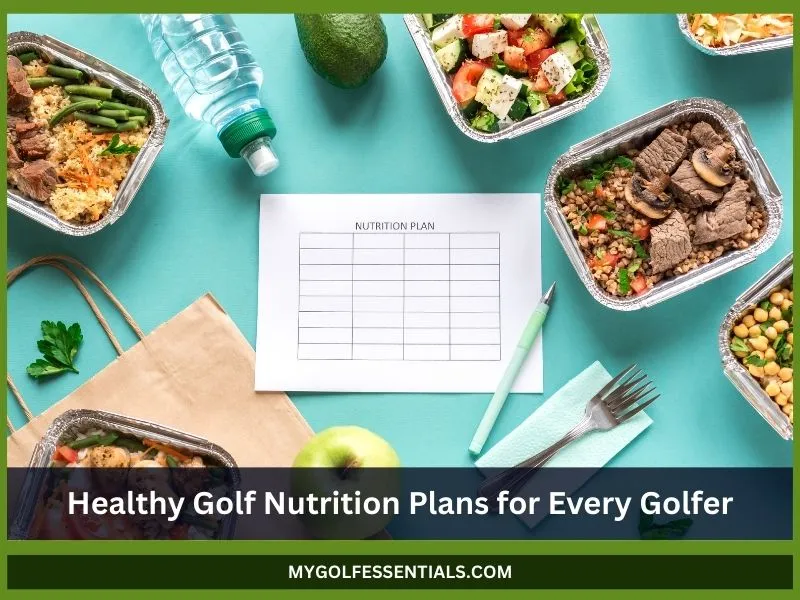
Want to drop extra pounds without giving up on delicious food? A well-balanced vegan nutrition plan for weight loss might be exactly what you need. Unlike crash diets or overly restrictive eating, a plant-based approach can help you lose weight while still fueling your body with real, wholesome foods. Whether you’re just curious or ready to make a full switch, this plan focuses on long-term results, not quick fixes.
In this article, you’ll learn how to build a simple and effective plant-based diet plan that supports fast and healthy weight loss. We’ll cover key principles, nutrients to focus on, smart portioning, and practical vegan meal ideas.
You’ll also find tips to lose weight on a vegan diet without feeling restricted. If you’re ready to see real changes while eating food that makes you feel good, keep reading.
Key Principles of a Vegan Weight Loss Plan
At the heart of any effective vegan nutrition plan for weight loss is the emphasis on whole, natural foods. These include fruits, vegetables, legumes, whole grains, nuts, and seeds. Unlike processed vegan items that may be high in refined oils, sugars, and additives, whole foods are nutrient-dense and calorie-light, making them ideal for shedding pounds while fueling your body.
Whole foods offer:
- Fewer empty calories
- Higher satiety
- Better nutrient absorption
- Reduced cravings and energy crashes
A plant-based diet plan built around unprocessed foods keeps your metabolism steady and helps you feel fuller longer, making it easier to avoid overeating.
Understanding Calorie Density
Not all calories are equal when it comes to weight loss. Calorie-dense foods pack a lot of energy into small portions, while low-calorie-dense foods allow you to eat more without going over your daily limit.
Choose low-calorie-dense foods like:
- Leafy greens (spinach, kale, romaine)
- Cruciferous vegetables (broccoli, cauliflower)
- Fruits like berries, oranges, and apples
- Cooked whole grains (quinoa, brown rice)
Avoid:
- Processed vegan snacks
- Refined carbs like white bread and pastries
- Deep-fried plant foods
This smart approach allows you to lose weight on a vegan diet without restrictive dieting.
The Power of Fiber in Vegan Weight Loss
Fiber is your secret weapon. Found only in plant-based foods, fiber promotes satiety and supports digestive health, two essential aspects of sustainable weight loss.
Benefits of fiber:
- Keeps you full between meals
- Reduces blood sugar spikes and crashes
- Promotes healthy digestion
- Helps regulate cholesterol
Top high-fiber vegan foods:
- Lentils and black beans
- Chia and flaxseeds
- Oats and barley
- Berries, apples, and pears
When you build your vegan nutrition plan for weight loss with fiber-rich foods, you’re setting yourself up for long-term success. But there’s more to weight loss than just calories and fiber, you’ll also need to make sure you’re not missing out on vital nutrients.
Essential Nutrients to Monitor
Many people ask if it’s possible to get enough protein on a vegan diet and the answer is yes. Protein helps repair muscle, supports metabolism, and promotes satiety.
Great sources of vegan protein:
- Legumes: lentils, black beans, chickpeas
- Soy products: tofu, tempeh, edamame
- Whole grains: quinoa, farro
- Nuts and seeds: almonds, sunflower seeds, hemp seeds
Eating a variety of these foods ensures you meet your protein needs without relying on animal products.
Vitamin B12: A Non-Negotiable Supplement
B12 is one of the few nutrients that a plant-based diet plan cannot provide naturally. This vitamin is essential for nerve function, red blood cell formation, and energy production.
To get enough:
- Take a weekly B12 supplement (cyanocobalamin form is most common)
- Choose fortified foods like plant-based milks, cereals, or nutritional yeast
Skipping B12 can lead to fatigue, weakness, and long-term nerve damage, don’t take the risk.
Iron, Calcium, and Vitamin D
These minerals are crucial for maintaining energy levels and strong bones especially when following a vegan nutrition plan for weight loss.
- Iron: Get it from lentils, tofu, spinach, and fortified cereals. Boost absorption by pairing with vitamin C (like bell peppers or citrus fruits).
- Calcium: Fortified plant milks, tahini, and almonds are good sources.
- Vitamin D: Best obtained from sun exposure, but supplements or fortified foods are often necessary, especially in winter months.
Omega-3s for Heart and Brain Health
Omega-3 fatty acids are often overlooked in vegan weight loss diets. However, they are important for brain health, hormone regulation, and fighting inflammation.
Plant-based omega-3 sources include:
- Flaxseeds and flaxseed oil
- Chia seeds
- Walnuts
- Algae-based DHA/EPA supplements (ideal for full coverage)
With the right approach, a vegan weight loss strategy can cover all your nutritional bases. Now that you know what to include in your diet, let’s dive into how to turn these insights into a practical meal plan that fits your lifestyle.
Structuring Your Plant-Based Diet Plan
For a successful vegan nutrition plan for weight loss, balance is everything. Your body needs the right mix of carbohydrates, proteins, and healthy fats to function optimally while shedding fat. A well-structured plant-based diet plan should include:
- Complex carbohydrates: Whole grains, legumes, fruits, and vegetables for energy and fiber
- Plant-based proteins: Tofu, lentils, tempeh, quinoa, and beans to build and repair tissues
- Healthy fats: Avocados, nuts, seeds, and olive oil to support brain health and hormone balance
Including all three macronutrients in each meal helps keep blood sugar stable and cravings in check. Don’t fear carbs, they’re essential when they come from whole food sources.
Portion Control and Mindful Eating
Even on a vegan diet, calories matter. Eating large quantities of calorie-dense foods like nuts, oils, and dried fruits can slow progress. Portion control, paired with mindful eating, can prevent unnecessary snacking or overeating.
Practical tips:
- Use smaller plates to reduce visual hunger
- Eat slowly and chew thoroughly to give your brain time to register fullness
- Avoid distractions like phones or TVs while eating
- Serve single portions instead of eating from the container
These simple habits can make a huge difference when trying to lose weight on a vegan diet.
Sample Meal Timing and Frequency
When you eat can be just as important as what you eat. While there’s no one-size-fits-all schedule, a structured meal routine can support metabolism and prevent unnecessary grazing.
Sample meal timing:
- Breakfast: Within an hour of waking
- Lunch: Midday, around 12–1 p.m.
- Dinner: 6–7 p.m., ideally 2–3 hours before bed
- Snacks: Only if needed between meals, to curb hunger
If you prefer intermittent fasting, a common window is 10 a.m. to 6 p.m. However, always prioritize consistency over trends.
Now that you know how to structure your eating routine, let’s look at some tasty and effective meal ideas that support your vegan weight loss goals.
Vegan Meal Ideas for Weight Loss
Crafting meals that are healthy, satisfying, and weight-loss-friendly doesn’t have to be complicated. The key is choosing nutrient-rich, whole ingredients that fit seamlessly into your vegan nutrition plan for weight loss. Below are some easy, balanced vegan meal ideas that can keep you on track.
Breakfast Options
Start your day with high-fiber and high-protein meals that fuel your body and keep you full until lunch.
- Overnight oats with chia seeds, berries, and unsweetened almond milk
- Green smoothie: spinach, banana, flaxseeds, and plant-based protein powder
- Tofu scramble with mushrooms, bell peppers, and whole grain toast
- Avocado toast on rye bread with hemp seeds
Lunch Options
Lunch should be a satisfying mix of complex carbs, plant-based protein, and colorful veggies.
- Quinoa salad with chickpeas, cherry tomatoes, cucumber, and lemon-tahini dressing
- Lentil soup with whole-grain bread and a side of leafy greens
- Buddha bowl: brown rice, roasted veggies, tofu, and hummus
- Chickpea wrap with spinach, grated carrots, and vegan yogurt dressing
Dinner Options
Keep dinners light but filling. Prioritize cooked vegetables and lean plant proteins to aid digestion and recovery.
- Stir-fried tofu with broccoli, carrots, and brown rice
- Stuffed bell peppers with black beans, quinoa, and salsa
- Zucchini noodles with lentil marinara
- Sweet potato curry with peas and cauliflower
Healthy Vegan Snack Ideas
Snacking smart is essential to prevent energy dips and overeating later. Choose snacks that are high in fiber or protein.
- Carrot or cucumber sticks with hummus
- Apple slices with almond or peanut butter
- A handful of mixed nuts and seeds
- Rice cakes topped with avocado
- A small smoothie with unsweetened plant milk and spinach
These meal ideas prove that a plant-based diet plan can be both nutritious and delicious, no boring salads required. But what about staying consistent and avoiding common vegan weight loss mistakes?
Tips to Lose Weight on a Vegan Diet
Even with the best intentions, a vegan nutrition plan for weight loss can fall short if it’s not paired with smart habits. These tips will help you stay consistent, motivated, and on track toward your weight loss goals.
Stay Hydrated and Avoid Sugary Drinks
Water plays a crucial role in digestion, metabolism, and satiety. Many people mistake thirst for hunger, leading to unnecessary snacking. Aim to drink at least 8 glasses of water daily, and even more if you’re active.
Limit or avoid:
- Sugary sodas
- Bottled iced teas
- Store-bought fruit juices
- High-calorie vegan lattes and frappés
Choose herbal teas, infused water, or sparkling water with lemon instead.
Move Your Body Regularly
You don’t need intense workouts to see results. Pairing your vegan weight loss plan with regular movement helps boost metabolism, burn fat, and preserve muscle.
Effective activities include:
- Brisk walking or cycling
- Strength training (bodyweight or resistance bands)
- Yoga or pilates for flexibility and stress relief
- Dancing or hiking for fun and cardio
The key is consistency. Aim for at least 150 minutes of moderate activity per week.
Plan Ahead to Avoid Processed Vegan Foods
Just because something is labeled “vegan” doesn’t mean it’s healthy. Processed vegan snacks and frozen meals can be high in calories, sodium, and additives. Planning ahead prevents you from reaching for these convenience foods.
Meal prep tips:
- Batch-cook grains like quinoa or brown rice
- Keep washed and chopped veggies on hand
- Store healthy snacks like nuts and fruit for easy access
- Make a weekly menu and grocery list
Having a plan makes it easier to stick to your plant-based diet plan without last-minute compromises.
Track Progress and Adjust as Needed
Regularly checking your progress ensures your efforts are working. Use a journal or app to log meals, physical activity, and how you feel. If your weight plateaus or energy drops, adjust your portions, food choices, or exercise routine.
Look out for:
- Slow weight loss or no weight change over weeks
- Excessive fatigue or cravings
- Skipping meals or snacking out of boredom
Losing weight on a vegan diet is a journey, not a quick fix. Consistency and small tweaks can bring big results over time.
But even the most disciplined eaters face challenges. Let’s talk about the most common struggles and how you can overcome them.
Common Challenges and How to Overcome Them
Starting a vegan nutrition plan for weight loss can feel exciting at first, but obstacles often pop up along the way. Cravings, nutrient gaps, and tricky social situations are all common. Here’s how to tackle them without falling off track.
Managing Cravings for Non-Vegan Foods
Cravings especially for cheese, meat, or baked goods, can derail even the best plans. These cravings are often tied to emotional triggers or nutritional imbalances.
Try these solutions:
- Eat enough protein to stay full
- Find satisfying plant-based alternatives (e.g., nutritional yeast for cheesy flavor)
- Practice mindful eating to understand true hunger vs. habits
- Don’t restrict too much, enjoy a vegan treat occasionally
Satisfying cravings the vegan way is possible with a bit of creativity and preparation.
Ensuring You Get Enough Nutrients
As discussed earlier, nutrients like B12, iron, and omega-3s are crucial on a vegan diet. A lack of these can lead to fatigue, mood swings, and slowed weight loss.
To prevent deficiencies:
- Eat a variety of whole plant foods
- Include fortified products like plant milks and cereals
- Take supplements when necessary (especially for B12 and D)
- Get bloodwork done regularly to monitor levels
Balancing your meals properly is a key part of a healthy and sustainable vegan weight loss strategy.
Navigating Eating Out and Social Events
Social events and dining out can feel tricky, especially when options are limited. Planning ahead helps you stay confident and avoid derailing your progress.
Tips for handling social settings:
- Check restaurant menus in advance
- Offer to bring a vegan dish to gatherings
- Eat a light meal before the event to avoid hunger-based decisions
- Don’t be afraid to ask for plant-based modifications
Learning to stay on track in real-life situations makes your vegan nutrition plan for weight loss more resilient and long-lasting.
Conclusion
Losing weight doesn’t have to involve extreme diets or constant hunger. A well-structured vegan nutrition plan for weight loss focuses on whole, nutrient-rich foods that nourish your body and help you shed extra pounds in a healthy, sustainable way.
From understanding key principles like calorie density and fiber intake to balancing essential nutrients and enjoying delicious vegan meal ideas, each part of your plant-based journey brings you closer to your goals. Yes, there will be challenges, like cravings or social situations, but with smart planning and the right mindset, you can overcome them.
Start small. Be consistent. And most importantly, enjoy the process. Because when done right, a plant-based diet plan isn’t just about losing weight, it’s about gaining energy, confidence, and long-term health.
Your path to a healthier, leaner you is already on the plate, one plant-powered meal at a time.
Key Points
- A vegan nutrition plan for weight loss emphasizes whole, unprocessed plant foods that are naturally low in calories and high in nutrients.
- Calorie density matters, choose foods like vegetables, fruits, legumes, and whole grains to feel full without overeating.
- Fiber is your friend, it helps control appetite, supports digestion, and keeps you feeling full for longer.
- Protein is essential on a vegan diet, include sources like lentils, tofu, tempeh, beans, and quinoa in every meal.
- Watch your nutrients, key ones to monitor include Vitamin B12, Iron, Calcium, Vitamin D, and Omega-3s; supplementation may be needed.
- Balance your plate with all macronutrients, carbs, proteins, and healthy fats to ensure energy, satisfaction, and nutritional coverage.
- Mindful eating and portion control prevent overeating, even on healthy foods listen to hunger cues and eat slowly.
- Smart meal planning helps you avoid processed vegan foods and stay consistent prep meals, snacks, and grocery lists weekly.
- Physical activity complements your diet, regular movement boosts metabolism and supports healthy fat loss.
- Challenges like cravings or eating out can be overcome with preparation, balanced nutrition, and finding satisfying vegan alternatives.
FAQs
Can I follow a vegan diet if I have specific health conditions?
Yes, but it’s important to consult with a healthcare provider or dietitian to ensure nutritional needs are met, especially for individuals with conditions like diabetes, heart disease, or those who are pregnant or breastfeeding.
How can I stay motivated on a vegan weight loss plan?
Staying motivated involves setting realistic goals, tracking progress, seeking support from online communities or friends, and celebrating small victories along the way.
What is a vegan nutrition plan for weight loss?
A vegan nutrition plan for weight loss focuses on whole, unprocessed plant-based foods, such as vegetables, fruits, legumes, whole grains, nuts, and seeds, that are naturally low in calories and high in nutrients. This approach helps reduce calorie intake while providing essential nutrients, promoting healthy and sustainable weight loss.



